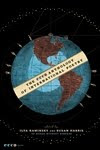Imperfect Understanding
Gregg Easterbrook, in his Daily Express column at The New Republic [I think this is the link, but it seems to be broken right now], says there should be fewer languages. In presenting his claim, he manages to conflate a number of issues while misunderstanding them. There are too many inaccuracies and howlers to go over individually, but we'll start with the main ones:
"The fewer the tongues, the more easily societies communicate." This is an argument by assertion. Easterbrook does not understand that we have both a global English-language culture and, at the same time, many minority languages which may or may not correspond to political entities. For example, all countries involved in the recent war in Iraq communicated in English among themselves, while their citizens speak languages other than English. Surely Easterbrook does not maintain that these countries would have "communicated more easily" if only all of their citizens spoke English. (Presumably our colonial mother, the United Kingdom, spoke something other than English in the late eighteenth century; otherwise we would not have had so basic a miscommunication as a war.)
Furthermore, not every minority language is an "indigenous language." Easterbrook is laboring under the misconception that there are two kinds of languages: global powerhouses, like English, and minority languages spoken only by the primitive inhabitants of an isolated territory. But there are many sorts of non-global languages, ranging from national vernaculars (Ukrainian, Belgian) to state-supported languages(Irish, Frisian) to stateless languages (Yiddish, Romani).
"For citizens of the developing world, speaking a top ten language opens doors to a better life." No one denies that English, or any other language of global commerce, is a route to economic success. This is trivial. There are two questions here: (a) how one is to define economic success. One can always make more money. Is it really true that all other languages besides English (or Mandarin) should be jettisoned as long as speaking them reduces one's income by some non-zero amount? Secondly, (b) how is one to define "a better life"? This is the non-trivial question which cannot be answered in daily-express fashion.
"Multiple languages arose because throughout history, many groups of people lived in isolation, interacting only with others like themselves." I've read this sentence a dozen times and I'm still not sure what it means. Does it mean that, ideally, there would only be one language, but that due to "many groups of people liv[ing] in isolation," multiple languages sprung up? (In that case, Easterbrook's knowledge of sociolinguistics stopped at the Tower of Babel.) But we know that many languages, if not all, arose precisely out of a process of contact and exchange between different groups. This certainly describes the genesis of English, Spanish, and Yiddish, and I bet lots of other languages too. Even the Romance languages (which Easterbrook might be thinking of) arose out of contact between Latin and coterritorial vernaculars, not out of inbreeding. I'm not sure what languages Easterbrook was thinking of when he wrote this sentence (if "wrote" is the word). He probably thinks that the indigenous languages he blesses with his disapproval somehow blossomed ready-made from the earth, without contact with any other language. This isn't true either.
"[. . .] when a rare language dies out, the culture it served can continue, just in some other tongue[.]" I admire Easterbrook's confidence, but I disagree. Cultures change when they are translated. Such translation is not a sin, and is not to be avoided -- it's necessary, after all, to help Jews understand what is said in the Yiddish most of them no longer speak. But this does not mean that all of Yiddish culture is readily translatable into English. Translation does not mean continuation.
"And of course if members of a small-language culture want to work to keep their tongue in use, that's great, so long as they know a major language as well." Now he tells us this, in the third-to-last paragraph? O editor, where is thy saving pencil?
Subscribe to:
Post Comments (Atom)








No comments:
Post a Comment